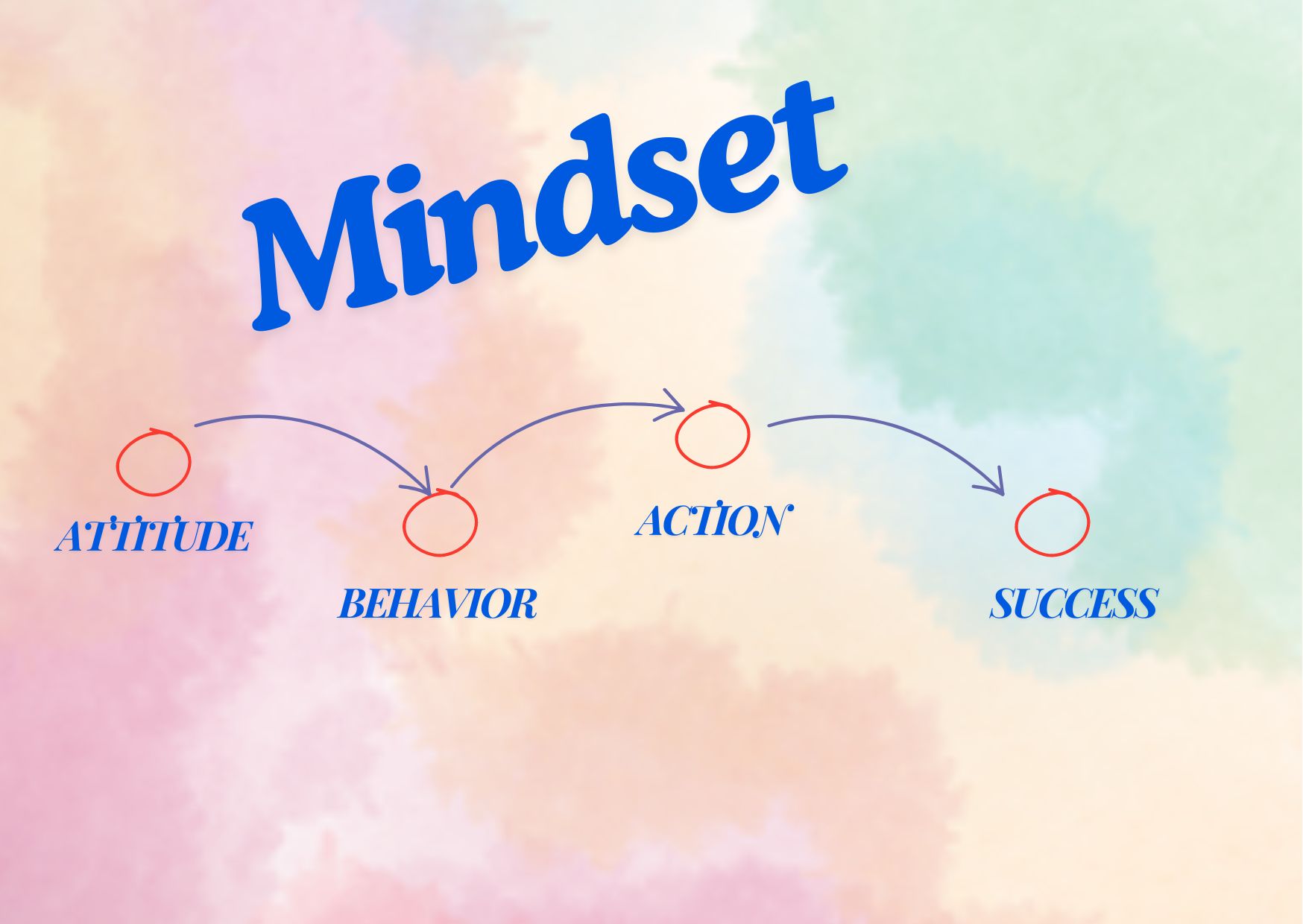Psychology of Success and Mental Health
The journey towards understanding the psychology of success reveals a complex interplay of factors that go beyond mere ambition and hard work. At the heart of this exploration is the quest to uncover how values, mental health, self-discipline, and a positive thinking framework contribute to achieving success. This investigation is not only pivotal for those seeking to fulfill their potential but also offers keen insights into the universal quest for meaning and accomplishment. By delving into the psychology of success, this article illuminates the critical roles that self-awareness, goal setting, and resilience play in navigating the path to success, underlining the importance of a holistic approach that encompasses both the mind and the actions of an individual.
In the subsequent sections, we will explore the definition of success, tracing its evolution from historical perspectives to contemporary views, and examine how mental health is an integral part of this journey. Insights into motivational theories will reveal how they apply to real-world success scenarios, while the societal expectations and values that shape our definitions of success will be scrutinized. Strategies for achieving success, emphasizing the importance of skills like critical thinking, self-esteem enhancement, and the cultivation of a growth mindset, will be discussed. Furthermore, the article will highlight the significance of self-awareness in recognizing one’s values, potential, and the sometimes thin line between ambition and becoming a workaholic. Through this comprehensive exploration, readers will gain valuable strategies and insights for nurturing their journey towards success, underscored by a deep understanding of its psychological underpinnings.
The Definition of Success
The concept of success is multifaceted and subjective, with diverse interpretations across cultures and individuals. While some perceive it through external measures like wealth, status, and accolades, others define it by internal factors such as personal fulfillment, happiness, and a sense of purpose. This dichotomy between external and internal measures of success is a crucial aspect to consider.
External vs. Internal Measures of Success
External measures of success are more tangible and quantifiable. These include factors such as income, job titles, awards, publications, and societal recognition. While these metrics provide a sense of achievement and validation, they may not necessarily translate into personal satisfaction or a meaningful life.
On the other hand, internal measures of success are more intrinsic and subjective. They encompass elements like personal goal achievement, skill development, job satisfaction, work-life balance, and financial stability. These internal factors are deeply rooted in an individual’s values, priorities, and sense of purpose, making them more personal and fulfilling.
Cultural Interpretations of Success
Cultural differences play a significant role in shaping perceptions of success. In some cultures, success is closely tied to individualistic pursuits, such as personal achievements, wealth, and status. In contrast, other cultures emphasize collectivistic values, where success is defined by the well-being of the community, harmonious relationships, and contributing to society.
- Western cultures often associate success with individual accomplishments, material wealth, and career advancement.
- Eastern cultures may prioritize inner peace, spiritual growth, and the fulfillment of societal expectations.
- Some cultures view success through the lens of family and community, valuing close relationships and social contributions.
- Other cultures may define success by one’s ability to create opportunities for others or make a positive impact on the world.
These cultural interpretations shape individuals’ goals, priorities, and the paths they choose to pursue happiness and fulfillment. Understanding and respecting these diverse perspectives is crucial for fostering a more inclusive and nuanced understanding of success.
Historical Perspectives on Success
The pursuit of success has captivated human curiosity across various eras, with diverse perspectives emerging from different historical periods and cultural contexts. This section explores the evolution of thought surrounding the concept of success, tracing its journey from early 20th-century views to mid-20th-century psychological insights and recent psychological research.
Early 20th Century Views
In the early 1900s, the concept of success was closely intertwined with values such as hard work, virtue, and community contribution. Success was often measured by one’s ethical character, family reputation, and ability to contribute positively to society. This perspective resonated with the simplicity of expectations prevalent in period-themed towns, where individual achievement was intrinsically tied to societal norms and collective well-being.
As urban centers and corporate hierarchies emerged, the definition of success began to shift. Influential figures like Dale Carnegie recognized the need for individuals to develop interpersonal skills and the ability to navigate bureaucratic structures. The concept of “winning friends and influencing people” gained prominence, reflecting the changing landscape of success in an increasingly complex social and professional environment.
Mid-20th Century Psychological Insights
The mid-20th century witnessed the emergence of humanistic psychology, a movement that profoundly impacted the understanding of success. Pioneered by theorists like Abraham Maslow and Carl Rogers, this approach emphasized the innate goodness of individuals and their inherent motivation to grow and reach their full potential.
- Maslow’s Hierarchy of Needs: Maslow proposed a hierarchy of needs, suggesting that individuals must satisfy their physiological, safety, love/belonging, and esteem needs before pursuing self-actualization, the ultimate realization of one’s full potential.
- Rogers’ Person-Centered Therapy: Rogers contributed the concept of person-centered therapy, which focused on creating a supportive and non-judgmental environment for individuals to explore their experiences and develop a sense of self-worth. He emphasized congruence, empathy, and unconditional positive regard as essential conditions for personal growth and fulfillment.
Other notable theorists, such as Rollo May and Erich Fromm, further explored the concepts of freedom, responsibility, and the search for meaning as integral components of success and personal fulfillment.
Recent Psychological Research
In recent decades, psychological research has continued to shed light on the multifaceted nature of success, offering insights into the cognitive, emotional, and social factors that contribute to achieving one’s goals and aspirations.
- Mindset and Self-Efficacy: Concepts like the growth mindset, introduced by Carol Dweck, and self-efficacy, proposed by Albert Bandura, have highlighted the importance of beliefs and attitudes in shaping career trajectories and personal growth.
- Emotional Intelligence and Mindfulness: The role of emotional intelligence, as defined by Daniel Goleman, and the practice of mindfulness have gained recognition for their positive effects on mental well-being, resilience, and overall success.
- Social Dynamics and Adaptability: Psychological research has also emphasized the significance of social dynamics, networking, and the ability to adapt and learn continuously in an ever-changing professional landscape.
By tracing the historical perspectives on success, we gain a deeper understanding of the evolving nature of this concept and the psychological factors that contribute to its realization. This knowledge not only informs our pursuit of personal and professional goals but also highlights the importance of a holistic approach that integrates various psychological insights and strategies.
The Role of Mental Health in the Psychology of Success
Mental health plays a pivotal role in achieving success, as it influences an individual’s ability to cope with challenges, maintain focus, and cultivate resilience. Despite the common perception that high achievers possess unwavering mental fortitude, research reveals a concerning trend: many successful individuals struggle with psychological disorders, often in silence.
Common Psychological Disorders Among High Achievers
- Depression: Studies indicate that high achievers, including CEOs, entertainers, athletes, and students, have a significantly higher rate of depression compared to the general population. The incidence of depression among CEOs is estimated to be double or even triple the national average, ranging from 20% to 50% (Barnard, 2010; Burguieres, 2008).
- Anxiety and Substance Abuse: High-achieving students and youth in high-performing schools are at an increased risk of anxiety, depression, substance abuse, and delinquent behavior, with rates two to three times higher than the national average (Luthar, 2020).
- Perfectionism and Self-Doubt: Maladaptive perfectionism, a relentless pursuit of perfection, can contribute to unhappiness and self-doubt, regardless of the level of success achieved. High achievers may focus excessively on their shortcomings, overlooking their accomplishments and failing to experience a sense of “good enough.”
- Burnout: Early career stages, typically between the ages of 20 and 30, are particularly susceptible to burnout. High achievers often take on additional responsibilities, compensate for weaker team members, and engage in activities unrelated to their primary tasks, leading to physical and emotional exhaustion.
Impact of Success on Mental Well-being
- Lack of Work-Life Balance: When an individual’s identity becomes heavily intertwined with their work or achievements, it can lead to a lack of balance in their personal life. This imbalance can contribute to feelings of loneliness, difficulty setting boundaries, and an increased risk of depression.
- Pressure and Stress: High achievers frequently face immense pressure to maintain their level of success, which can lead to chronic stress, anxiety, and a fear of failure. The constant striving for an almost impossible goal can take a toll on their mental well-being.
- Imposter Syndrome: Despite their accomplishments, many high achievers experience imposter syndrome, a persistent self-doubt and fear of being exposed as a “fraud.” This can lead to increased stress, anxiety, and a diminished sense of self-worth.
- Sacrificing Relationships: In the pursuit of success, high achievers may prioritize their goals over maintaining strong social connections and relationships with friends and family. This isolation can significantly increase feelings of loneliness and contribute to mental health challenges.
It is crucial to recognize that mental health is an integral part of overall well-being and success. By addressing psychological challenges and cultivating a healthy mindset, individuals can unlock their full potential and achieve sustainable success without compromising their mental well-being.
Motivational Theories and Success
Motivational theories provide a framework for understanding the driving forces behind human behavior and the pursuit of success. These theories shed light on the intrinsic and extrinsic factors that influence an individual’s motivation, goal-setting, and achievement.
Intrinsic vs. Extrinsic Motivation
One fundamental distinction in motivational theories is the contrast between intrinsic and extrinsic motivation. Intrinsic motivation refers to the inherent desire to engage in an activity for its own sake, driven by personal interest, enjoyment, or a sense of challenge. On the other hand, extrinsic motivation stems from external factors, such as rewards, recognition, or the avoidance of punishment.

